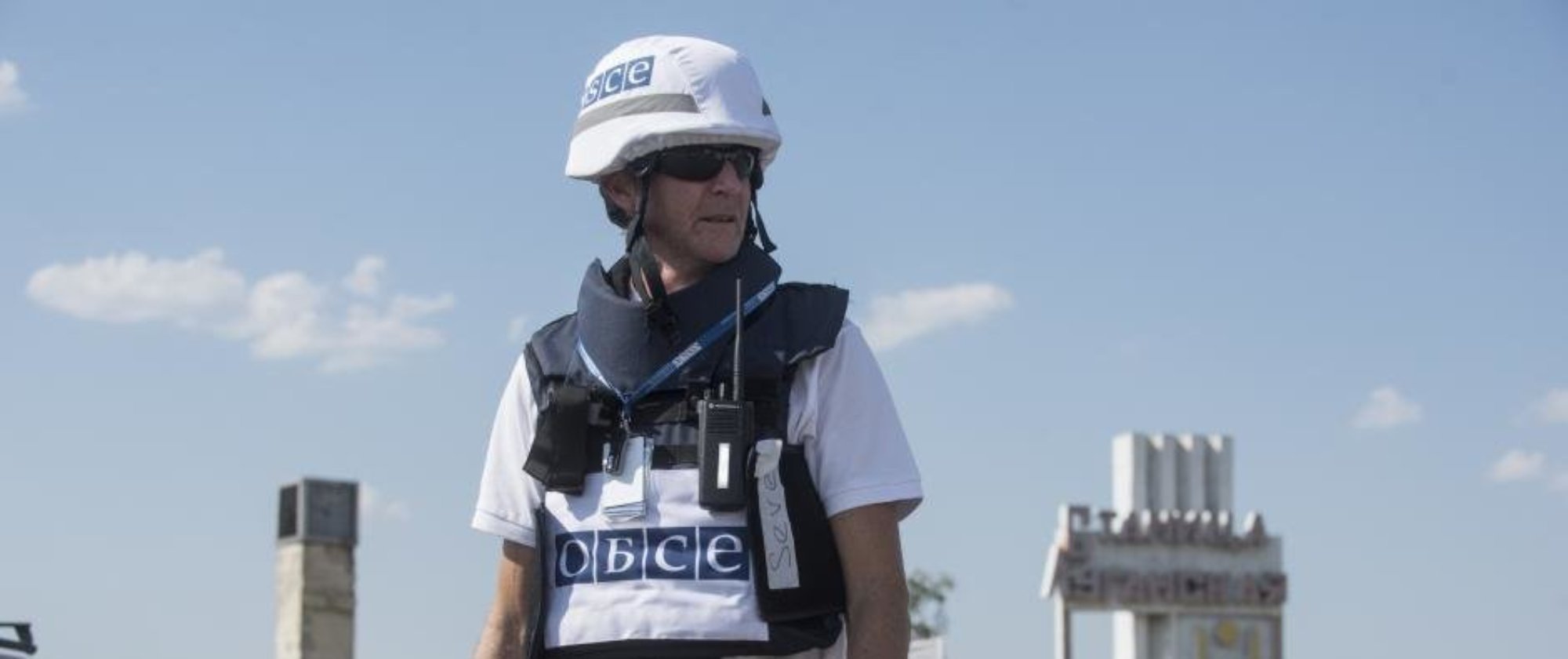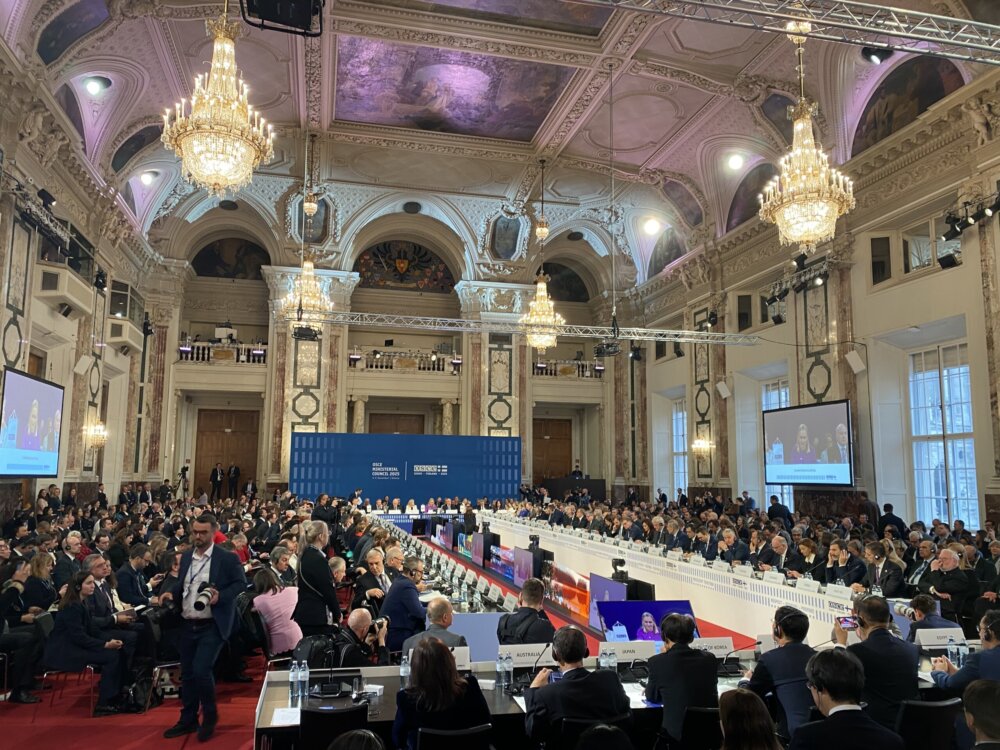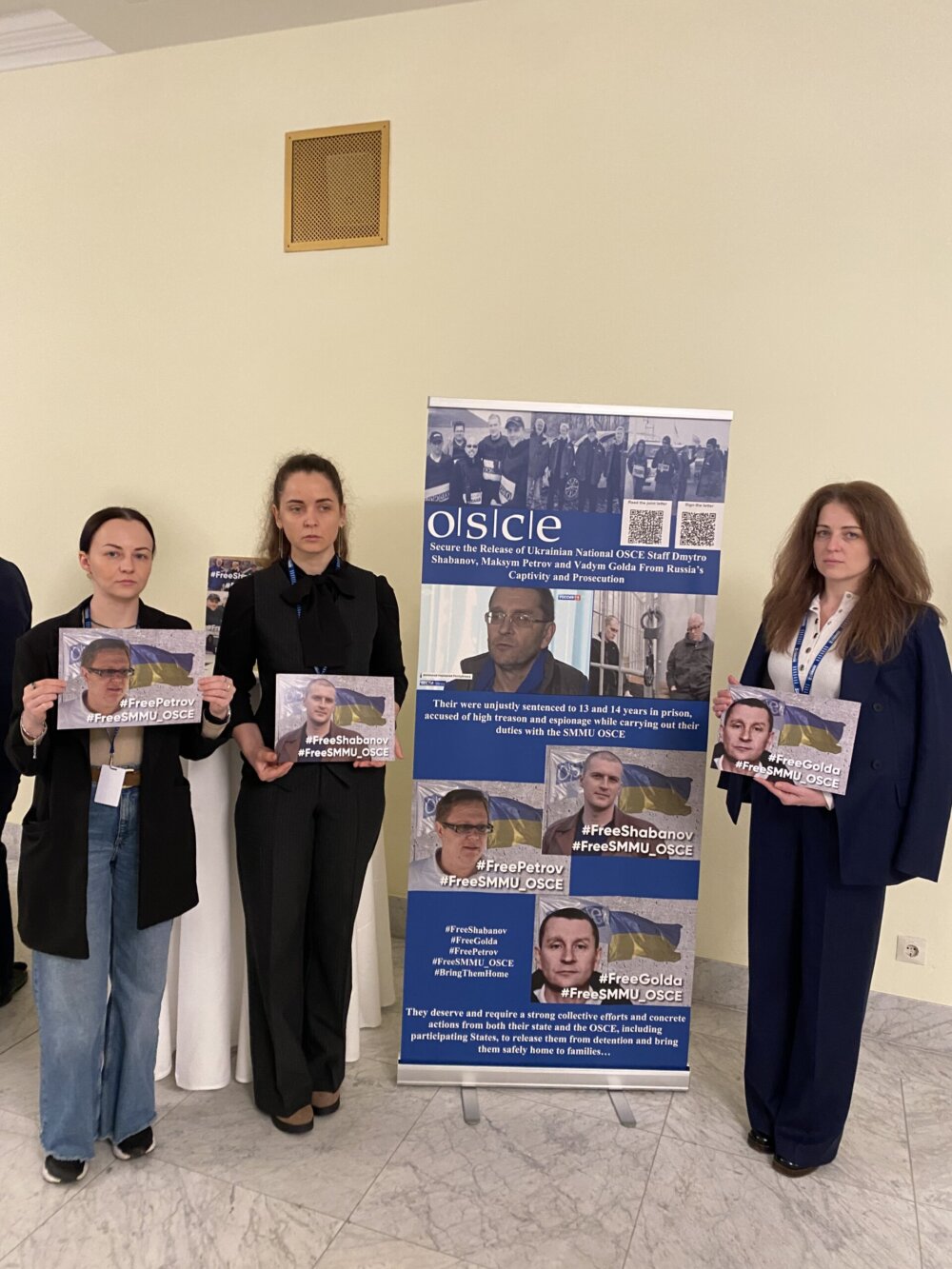OSCE/Evgeniy Maloletka

Russia blocks mandate extension of OSCE monitoring mission to Ukraine
Russia has refused to join consensus on extending the mandate of the OSCE Special Monitoring Mission to Ukraine, OSCE diplomats in Vienna say. The mandate of the Organization’s flagship operation in Ukraine, which has to be renewed on a yearly basis, will expire today, 31 March, at midnight.
Thereafter, the mission will go into a limited, administrative mode and OSCE participating States will continue negotiations under the leadership of the Polish OSCE Chair on a possible future OSCE presence in Ukraine. It is not yet clear how long this consultation process will last and how it will end.
OSCE diplomats in Vienna say that Russia blocked the consensus needed for extending the mandate of the OSCE Special Monitoring Mission to Ukraine (SMM) and demanded the mission’s closure. Moscow insists that the mission must cease to exist since there is no consensus to prolong the mandate, and says that the closure proceedings should be initiated promptly.
Russian diplomats officially expressed this position last Friday to the OSCE Advisory Committee on Management and Finance, an expert-level body, and repeated it at the OSCE Preparatory Committee meeting yesterday afternoon, according to OSCE diplomats present at the meetings.
The Russian mission to the OSCE was not immediately available for comment.
OSCE diplomats say that the vast majority of the 57 OSCE participating States support Ukraine’s request for an extension of the SMM mandate or want to see some form of future OSCE presence in Ukraine, depending on how the situation evolves. Those states include all EU member states, the United Kingdom, the United States, Canada and many other likeminded states in the OSCE.
“Irresponsible and unjustifiable”
At the regular OSCE Permanent Council meeting today, Michael Carpenter, the U.S. Ambassador to the OSCE, said he “deeply regretted” Russia’s decision to block the mandate extension.
“It is irresponsible and unjustifiable, but I guess it’s hardly surprising. No one will ever forget the actions of the Russian Federation that brought us to this point today: its prosecution of an unprovoked and barbaric war of aggression on Ukraine.”
Carpenter said that he “fully sympathized and concurred with the objections” that Ukraine expressed in opposition to closing the mission.
Neil Bush, the UK Ambassador to the OSCE, expressed his gratitude to the OSCE monitors “for the dedication that they have shown over the last 8 years”. He said that Russia “clearly fears impartial, facts-based reporting”.
“We heard here today a poorly disguised attempt to shift the blame for the failure to extend the Mission’s mandate onto others. Making untrue allegations of bias and referring to a change in the security situation in Ukraine entirely of Russia’s making, does not absolve them of full responsibility for not extending the Mission’s mandate.”
Polish Foreign Minister Zbigniew Rau, who currently chairs the OSCE, and OSCE Secretary General Helga Maria Schmid equally expressed “sincere regret” over the failure to extend the mandate in a joint statement.
Negotiations to continue
Rau also said that the Polish Chairmanship will “continue consultations with the participating States on the OSCE’s future role and presence in Ukraine”.
“While those discussions continue, the SMM will maintain its administrative status as an OSCE field operation, and continue to carry out functions including ensuring the safety and security of mission members, assets and premises,” the joint statement read.
OSCE diplomats say that the Polish Chair decided to allocate some extra time for negotiations due to the overwhelming support for a potential OSCE presence in Ukraine in the future, for example in the (unlikely) event of a ceasefire.
During this consultation process the SMM will go into a limited administrative mode and diplomats hope that some of the SMM’s assets and infrastructure in Ukraine can be kept on standby until there is more clarity on the way forward, including the political will as well as the situation on the ground in Ukraine.
The SMM is the OSCE’s largest field operations. In 2021, it had a yearly budget of 108,709,400 Euros as well as about 1,300 staff members, thereof around 689 international monitors from 43 states.
The SMM is currently already operating in a very limited capacity.
The SMM’s monitoring activities have been paused as of 7 March, when the evacuation of international mission members from Ukraine was completed, and when the SMM suspended its reporting activities due to the Russian invasion of Ukraine.
National mission members are currently undertaking administrative functions on the ground only in relation to the SMM’s premises and assets, including its many armored vehicles, drones and cameras that had previously been used to monitor the situation in Ukraine.
No standard procedure for closure
In the past, OSCE field operations have closed either because host governments or other states have failed to offer political support for their continuation, or because the operations had simply accomplished their objective.
Such closures have assumed various forms and taken place under differing circumstances, meaning that there is no clear-cut, standard procedure in place.
OSCE field operations have, for example, been closed via a step-by-step procedure — usually within a timeframe of approximately three months — after mandates have not been extended.
Alternately, they have been shut down only after an additional period of political consultations – as is the case now with the SMM – during which the mission in question ceased its activities and went into a restricted administrative mode.
The latter took place, for example, with the OSCE Office in Yerevan. That office’s mandate expired on 31 December 2016 because Azerbaijan refused to offer the necessary political support.
The Austrian Chair continued mandate negotiations for another four months until the beginning of May 2017, when the Chair finally concluded that continuing discussions would no longer be fruitful and instructed the OSCE Secretary General to initiate closure proceedings. They were completed on 31 August 2017.
Eyes and ears on the ground
The OSCE SMM was first deployed on 21 March 2014, following a request by Ukraine and a consensus decision by all 57 OSCE participating States, including Russia. It was composed of unarmed civilian monitors who had been seconded by OSCE participating States.
Prior to the Russian invasion of Ukraine, the monitors observed ceasefire violations, facilitated dialogue, and brokered local truces to enable the repair of critical civilian infrastructure such as water filtration stations. They were considered the “eyes and ears” of the international community in Ukraine. The SMM was headed by Turkish diplomat Ambassador Yaşar Halit Çevik.
Two mission members have died while on duty. Five years ago, Joseph Stone from the United States was killed when his armored vehicle hit a mine. On 1 March of this year, Maryna Fenina of Ukraine was killed by Russian shelling in the Ukrainian city of Kharkiv.



Comments
* Your email address will not be published